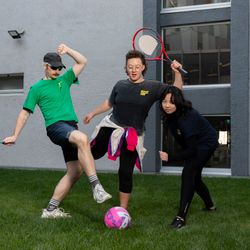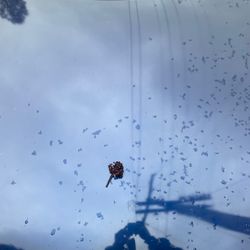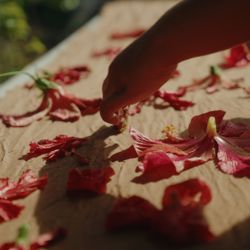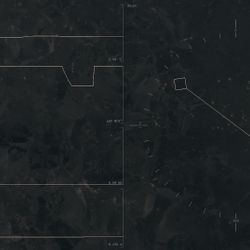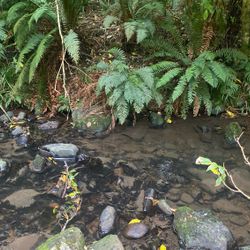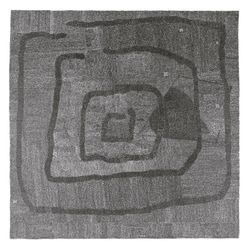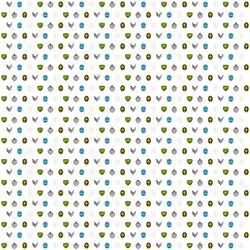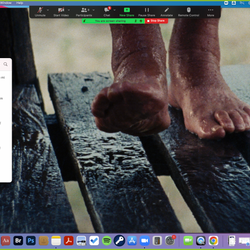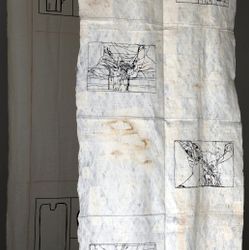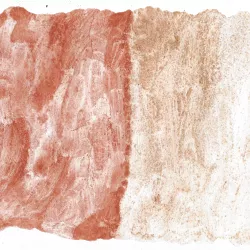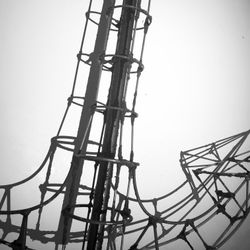Using the framework of the Talmud, Casey Carsel's When a poor man eats a chicken, one of them is sick (but we sing, we still sing) interweaves various writings and re-writings of how to be Jewish and what it means to be Jewish today. With the script of Fiddler on the Roof acting as a contemporary iteration of Mishnah, the exhibition stands as both a critical investigation into and a love letter to contemporary Jewish culture.
Past Exhibition
Wenerei 9 Oketopa -
Hātarei 16 Noema
Wednesday 9 October -
Saturday 16 November
2019
When Fiddler on the Roof opened on Broadway in 1964 it was an instant hit, [1] beloved by Jews and goyim [2] alike. Why? Because it was about the struggle between tradition (!) and modernity. Rather than dissipating, this struggle has only become more complex over time, as the past continues to churn through the present. [3]
Tevye: Of course, we don't eat like kings, but we don't starve either. As the Good Book says, "When a poor man eats a chicken, one of them is sick."
The Rabbi’s son: Where does the Book say that?
Tevye: All right, all right! It doesn't exactly say that, but someplace, it has something about a chicken.
Tevye looks to his ancient texts for guidance, but when he repeats them they turn into something else that speaks to his own time and context. When a poor man eats a chicken, one of them is sick (but we sing, we still sing) jumps into and extends this spiral.
Fiddler on the Roof was based on a series of short stories collectively titled Tevye the Dairyman (1894) and written by canonical Jewish writer Sholem Aleichem, whose works are known for their evocative depictions of the Jewish shtetl [4] . The translation of Aleichem’s stories into Fiddler brought to life a deeply felt portrait of the American Jew’s journey from the old country to the new. Such journeys in the Jewish diaspora are well-put in the final stanza of poet Yehuda Amichai’s The Jews :
And what about God? Once we sang
“There is no God like ours”, now we sing “There is no God of ours”
But we sing. We still sing.
Using the framework of the Talmud [5] , When a poor man eats a chicken, one of them is sick (but we sing, we still sing) interweaves various writings and re-writings of how to be Jewish and what it means to be Jewish today. With the script of Fiddler on the Roof acting as a contemporary iteration of Mishnah [6] , the exhibition stands as both a critical investigation into and a love letter to contemporary Jewish culture.
Casey Larkin Mazer Carsel is a New Zealand-born, Jewish editor, writer and artist. Her practice focuses on communal narratives and how they are constructed, passed through generations and throughout the world, and how these stories shape identities and form interpersonal connections. What is held onto? What is forgotten? What is lost in translation? Her work is often laced with dark humour as she explores themes such as grief, storytelling, ritual and culturally specific jokes.
A recent graduate of the School of the Art Institute of Chicago’s MFA in Writing program, Carsel has held solo exhibitions at MEANWHILE onsite and online, Te Whanganui-a-Tara, and Window Online Gallery, Tāmaki Makaurau. Her writing has been published by The Seen, F Newsmagazine, Clark House Initiative, Adam Art Gallery and Hamster, amongst others. Carsel is a co-founder of Plates , a journal of art and culture whose first issue is forthcoming later this year.
Public Programme
Thursday 10 October, 5:30pm | Film Screening: Fiddler on the Roof
An Oscar-winning film adaptation of the eponymous Broadway musical, Fiddler on the Roof follows a poor milkman (Chaim Topol) through the marriages of his eldest three daughters. Set in the Jewish community of a pre-revolutionary Russian village, the plot unfurls against the backdrop of changing social mores and a growing anti-Semitism that threatens Tevye’s home and way of life.
Friday 11 October, 12noon | Fibre/Textile Art Circle
An open workshop and conversation around textile practice. Bring a project to work on or experiment with the provided materials. Click here to register.
Tuesday 12 November, 5:30–7:30pm | Reading Group: Sholem Aleichem’s Tevye the Dairyman
A guided conversation focused on a selection of Ukrainian-Jewish writer Sholem Aleichem’s Tevye the Dairyman short stories (the stories on which Fiddler on the Roof was based). Click here to request PDFs.
Saturday 16 November, 11am | Artist Talk: Casey Carsel in conversation with Grace Ryder
Click here to join Facebook event
[1] See https://web.archive.org/web/20040603205640/http://www.playbill.com/news/article/84588.html for more on that original production.
[2] See https://www.myjewishlearning.com/article/jewish-and-goyish/ for Lenny Bruce’s take on the meanings of these two words.
[3] Sounds crazy, no?
[4] Eastern European village.
[5] The Talmud is an ancient Jewish text—a record of the rules, arguments, stories and jokes by and around which Jews have lived across generations. Very little goes uncontested in Jewish life, nothing stays still, and everything is written down.
[6] The central section of each page of Talmud around which the rest of the page revolves (learn more at https://www.bbc.com/news/magazine-24367959 ).
